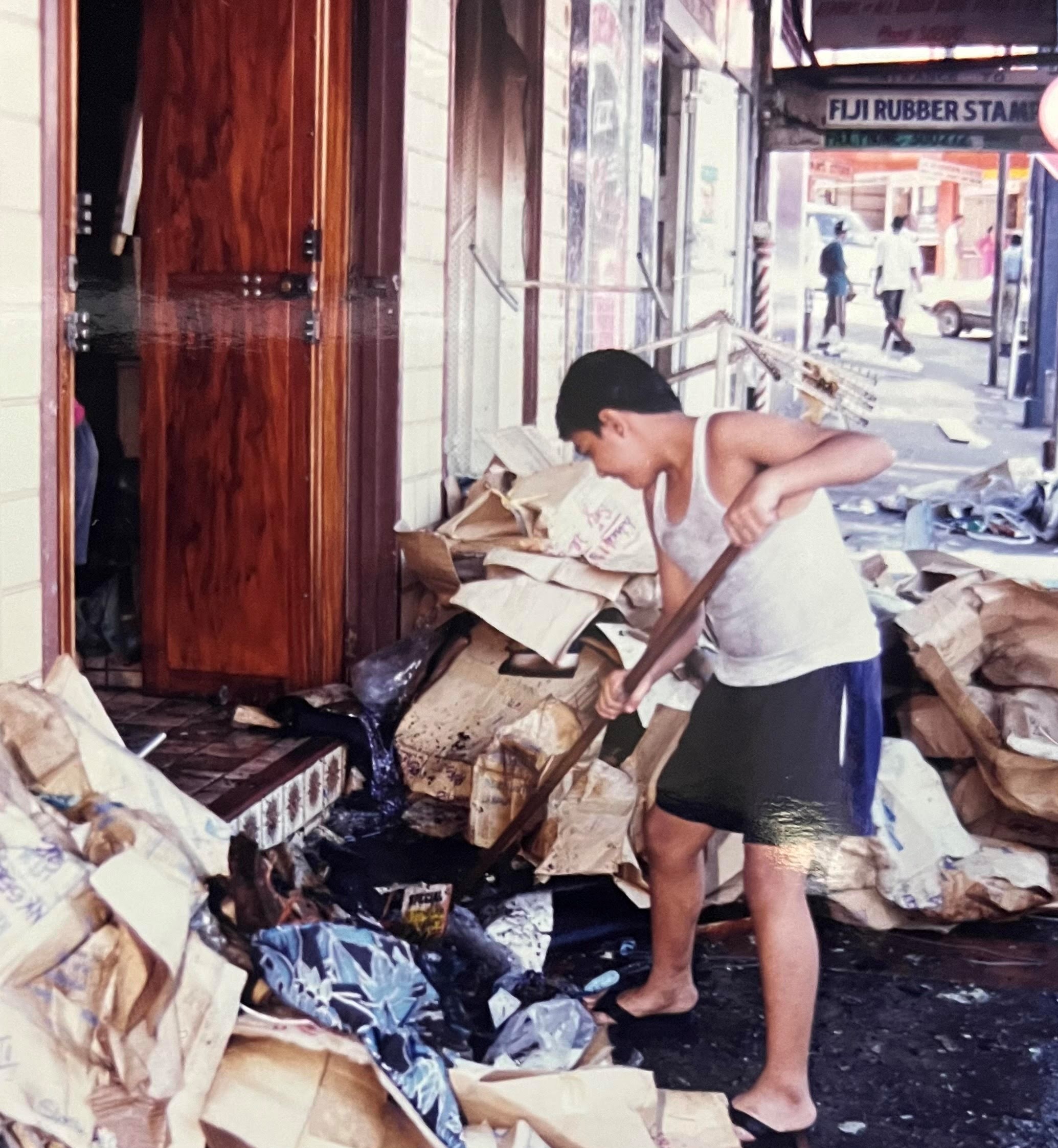Part 2
On May 21, 2000 this newspaper published a story about the then prime minister Mahendra Chaudhry wanting to speak to reporters while being held hostage.
It was reported that tension was near boiling point at Veiuto as takeover leader and self-proclaimed prime minister George Speight threatened to “jeopardise the lives of the democratically-elected members of government”.
It was also reported that Mr Chaudhry was sick and required hospitalisation.
At 10am on May 20 the general secretary of the Methodist Church, Reverend Dr Ilaitia Tuwere, and superintendent of the Wesley Division, Reverend Jione Lagi, prayed with the members of government who were held hostage.
The members were separated – the iTaukei and the Indo-Fijians. The two groups according to the article had been held separately when Speight with a group of armed men overthrew the government.
While the iTaukei members of government were held in the main complex, the Indo-Fijian members were in government offices with the windows and doors locked.
The Indo-Fijians members, according to the article sat in absolute silence in a room without any light and were not allowed to come out.
They were only allowed to visit the toilets under heavy guard. Mr Lagi said Manoa Bale, a member of the ousted government asked him to visit and pray for those held hostage.
Mr Tuwere said the government members looked well and appreciated their prayers. While he refused to comment on the coup, Mr Tuwere said the church deplored the looting.
The two men of the cloth were escorted into the premises by the former head of the disbanded Fiji Intelligence Services, Metuisela Mua.
Police and military personnel according to this newspaper had erected roadblocks around Veiuto, barring people from entering and isolating those already inside.
One hour after the church leaders arrived, Speight warned against outside intervention.
“We will not be held responsible for any fatalities here,” he said.
He was reacting to news that the armed forces had declared their support for President Ratu Sir Kamisese Mara and were threatening to forcibly enter Parliament.
“Ratu Sir Kamisese places the lives of MPs in jeopardy by insisting that armed forces take over. We ask him to reconsider,” he said.
At 11.45am on May 20, Pratap Chand was allowed outside the chambers for the first time since Friday (May 19).
The Fiji Times reported that Mr Chand was escorted by Speight’s two bodyguards and Ratu Timoci Silatolu, appointed interim prime minister by Speight.
Speight said he offered Mr Chaudhry an open line to President Ratu Sir Kamisese to advise him that they were safe and to discourage the army from intervening.
Mr Chaudhry according to the article asked for time to consult his members and this was declined and he was promptly escorted back.
At noon (May 20) Speight made the same offer to deputy prime minister Dr Tupeni Baba.
“Mr Chaudhry has agreed with Dr Baba in relinquishing control to me,” he said.
On the same day, the newspaper also ran an article titled I tried to warn them: Savua. The Police commissioner at the time, Isikia Savua, highlighted that he had tried to warn the government of events that Suva experienced on May 19.
Mr Savua said he had warned of trouble if grievances expressed in the second Fijian march through Suva were not addressed.
At a press conference after the Soqosoqo ni Vakavulewa ni Taukei Party-organised march, Mr Savua had indirectly warned government of possible riots if another march of that magnitude was organised.
According to the article published on May 21, Mr Chaudhry had defined Mr Savua’s position as the police head and not a political analyst when reacting to the commissioner’s warning.
Mr Savua said on May 20 there was no immediate presence of the military on the streets when rioting and looting began because procedures required the military to await advice from police who had to get the approval from their minister, prime minister and the president.
“We had told the government that we were outnumbered through the media, I made a public announcement about this,” Mr Savua said.
“The numbers are there, there will never be a time when there will be parity between the number in the police and those who are out there.
“So we appealed for dialogue when possible, but I was shot down.”
During rioting, according to this newspaper there were 250 policemen on the streets – a ratio of one policeman to every 60 people.
Mr Savua confirmed that some of coup leader George Speight’s men were serving military officers using Fiji Military Forces guns.
Mr Savua said because his police officers were not armed at the Parliament gates, they could not do much when the men drove in brandishing machine guns and pistols.
Also on May 20 judges met in Suva to and expressed concerns over Speight’s led coup on the Labour-led People’s Coalition government.
The judiciary had taken a similar stand back in 1987.



